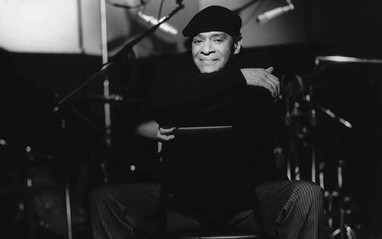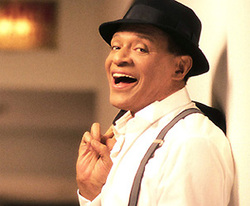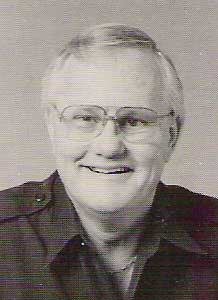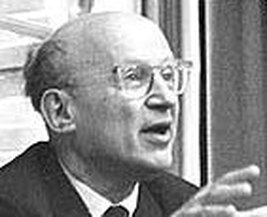In 1965, my grandmother was living in Baltimore, MD. One day, a package arrived for me and it was from my grandmother. The parcel contained a baseball sweatshirt and an autographed 8x10 photo. However, the sweatshirt was not of the Yankees and the photo was not Mickey Mantle. Instead, it was a Baltimore Orioles sweatshirt and the photo was signed to me from Orioles’ third baseman Brooks Robinson.
As it happened, the Orioles were playing the Yankees the very next Saturday on ABC’s Game of the Week. Watching that game, I became-then and forever-an Orioles fan and a Brooks Robinson fan. Now, I was only six years old but I had never seen or imagined a player like Brooksie. His fielding was incredible! Sure, he was great with the bat but that glove! I was hooked.
The very next season, 1966, the Orioles went to the World Series against…who? The same Los Angeles Dodgers who had defeated Mick and the Yankees in 1963. The Dodgers had won the 1965 Series, as well, by finishing the Minnesota Twins 4-3. The deadly Sandy Koufax was once again the MVP. But ’66 was going to be different…
I can remember rushing home from school to watch the day games. My mother would have the television set turned on, tuned to the station broadcasting the games, and waiting for me.
It was an unbelievable Series. The Orioles crushed the powerful Dodgers 4-0; a sweep! It was the Orioles’ first World Series victory in franchise history. In Game One, Brooks and Frank Robinson hit back to back home runs. A remarkable young rookie and future Hall of Fame pitcher named Jim Palmer closed out Koufax’s career by handing him a 6-0 shutout loss in Game Two and Dave McNally defeated Don Drysdale 1-0 in the fourth and final game. Exciting stuff!
I continued watching Brooks Robinson every season until his retirement in 1977 and Brooks had played every game of his career in an Orioles uniform. Let me just brag on him a bit. He had won 16 consecutive Gold Glove Awards, , had played in 18 All-Star games, and he had been in the World Series in 1966, 1969, 1970 and 1971. The Orioles had won the Series in ’66 and ’70. He had won the American League MVP in 1964 and was World Series MVP in 1970. He was chosen to the Major League All-Century Team and his number (#5) was retired by the Orioles, never again to be worn by any other Oriole player.
This was and is my favorite athlete of all time in any sport. More than Magic Johnson, more than Merlin Olsen… Brooks stands alone.
In 1987, I got to meet him…
I had been collecting baseball cards for years. In 1985-86, my pal David and I had taken it to a new level. We both had decent paying jobs and we could really get into some serious card buying. He was a Carl Yastrzemski fan which meant that he and I never competed for the same cards. He could have all the Red Sox cards he desired and I would never fight him for them. Ever. He felt the same way about my Orioles.
In 1987, we got the opportunity to go to a baseball card exhibition in Tampa.
And…Brooks…Robinson…was…there…
Even David wanted Brooksie’s autograph. I got Brooks to sign an 8x10 photo for me, autographed the very same way he had done back in ’65 for me through my grandmother. As an aside, when I told my grandmother that I had gotten Brooks to sign a photo for me, her response was: “Why? Didn’t I give you one in 1965?” She didn’t see the need for a second one.
He was everything you could have hoped he would be: gracious, engaging, a true gentlemen. When the crowds died away, I got to speak with Brooks semi-privately. We both bemoaned the Orioles’ woes at third base at that time. They had had almost 100 errors at third base over the last two seasons. We got to discuss players and managers, past and present.
He had enjoyed making the 1966 Sports Illustrated cover with Frank Robinson and the caption reading “The Robinsons of Baltimore.” He said that in the 1970 Series (after he had made that amazing grab which carried him way over the third base foul line to throw out Cincinnati’s Lee May at fist) that as May was heading back to the Reds’ dugout, he shouted at Brooks, “I just put you on the permanent highlight reel!” Which was true. Ironically, Lee May would join Brooks on the Orioles’ roster in 1975.
Brooks still seemed shocked at the results of the 1969 World Series loss to the New York Mets. I still have newspaper clippings of that Series. I told him the story of my grandmother getting his autograph and he laughed, saying “Yeah, all the grandmothers liked me. The younger ones all went for Jim Palmer, especially after his underwear ad.”
He was very impressed with a young Orioles shortstop named Cal Ripken, Jr. “He’s actually a third baseman, you know,” he said. “Weaver decided to play him at short. And why not? The kid had come to the ballpark with his dad (Orioles’ Third Base Coach, Cal Ripken, Sr.) and was always learning from (shortstop) Mark Belanger. It was a great move.”
Regarding the great Orioles manager Earl Weaver, Brooks said that he never had any problems with Weaver. “I never gave him a reason to be angry! I batted in the lineup wherever he told me. I positioned myself where he told me.”
He told me stories of Boog Powell and Davey Johnson, Paul Blair and Andy Etchebarren—all Oriole greats. It only occurred to me later that he was more comfortable speaking of others that of himself. In doing so, however, he told me so much about himself.
He was sincerely interested in other people. He had asked me questions about myself and he was interested. He enjoyed people. He had spoken of players, managers, owners, and umpires. In 1976, Umpire Ron Luciano had said, “I don’t care who wins, as long as it’s not Earl Weaver.” Brooks still laughed about that.
He loved baseball. He quoted Ted Williams who, after his retirement, had said that he didn’t miss the travel or the practices but he missed baseball. And baseball misses Brooks Robinson. At least, I do. He was called “Mr. Oriole,” a title which he bequeathed to Cal Ripken, Jr. upon Cal’s retirement.
That was Brooks Robinson, exactly as I had hoped. He was a gentleman eager to speak well of others while never uttering a negative word about anyone, not even Pete Rose who was standing in the hallway outside.
More interested in others than in himself. Now that’s a hero.
© copyright 2011. All rights reserved.




 RSS Feed
RSS Feed
